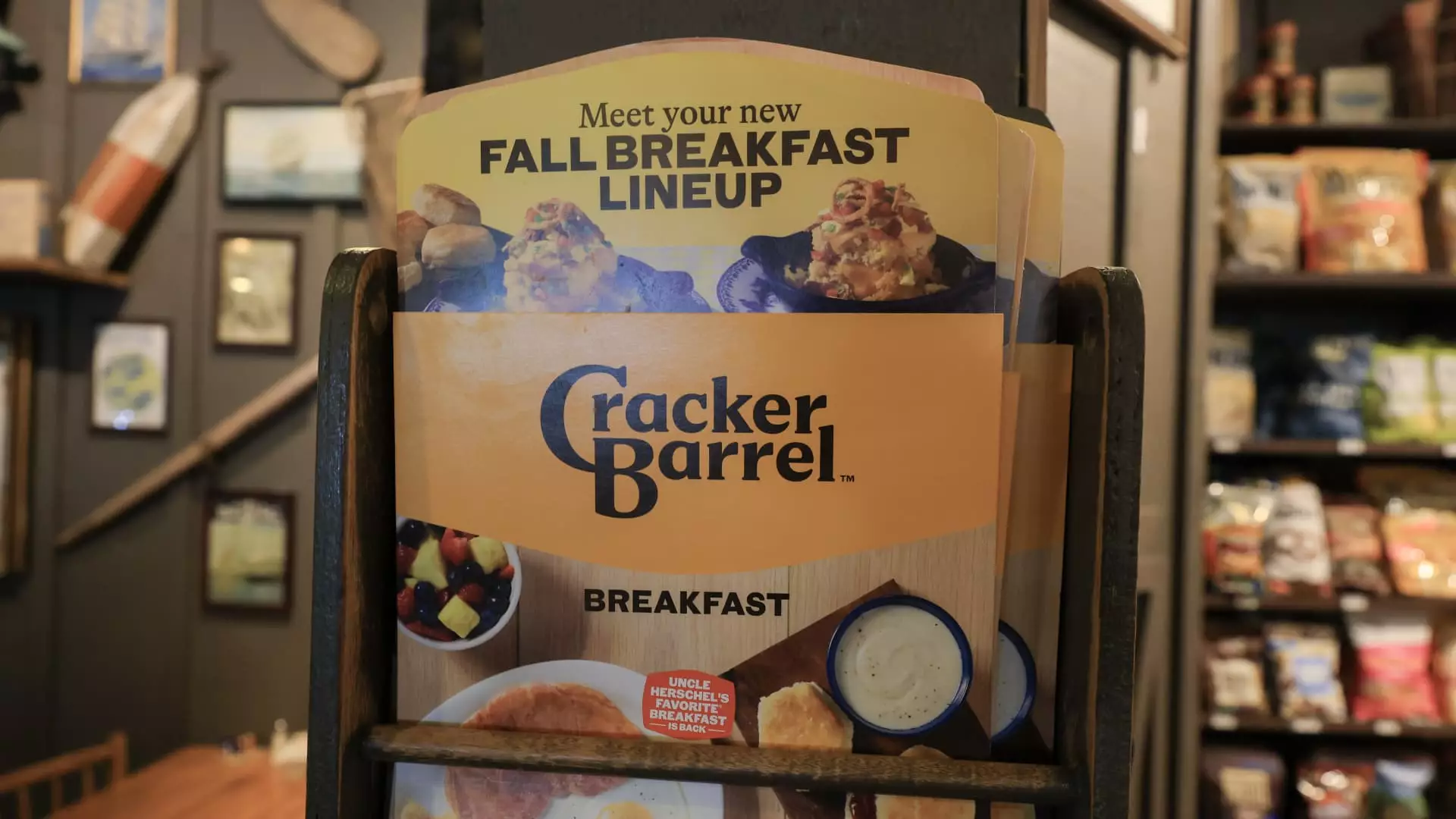In a world increasingly obsessed with surface-level reinventions, Cracker Barrel’s recent attempt at a brand refresh reveals a troubling tendency among corporations to prioritize fleeting modern trends over authentic branding. What was once a warm, familiar emblem of Americana—a rustic figure leaning against a barrel—has been erased in favor of minimalism that feels disconnected from the chain’s true identity. The removal of the iconic imagery and the phrase “Old Country Store” signals not just a superficial redesign but a deeper rejection of the values that originally made Cracker Barrel resonate with generations of families. Instead of embracing a sincere evolution, the company appears to chase a generic aesthetic, rendering itself less distinctive and more like a faceless chain in the crowded landscape of modern dining options.
The Political and Cultural Spin
Cracker Barrel’s troubled transformation cannot be divorced from the broader cultural signals being sent through corporate branding. Social media chatter, especially from conservative corners, reveals a growing suspicion that this rebrand is driven less by a desire to innovate and more by a calculated attempt to align with politically correct narratives. Critics point out that the removal of traditionally American elements, like the “Old Country Store” tag and the classic Americana iconography, suggests a capitulation to progressive pressures related to diversity, equity, and inclusion. This perceived capitulation fuels the narrative that American heritage is under threat, commodified and sanitized to fit a more “inclusive” but arguably inauthentic corporate image.
The Illusion of Progress vs. Genuine Values
The company’s leadership insists that its transformation retains the “rich history of country hospitality,” yet the disconnect is palpable. When a beloved visual icon is abandoned in favor of a sterile, modern aesthetic, it signals a departure from the core values that once defined Cracker Barrel’s appeal. The sincerity of the brand’s claim to uphold traditional hospitality is challenged by the swift and stark visual overhaul—an overhaul that many customers see as unnecessary and disingenuous. The issue is not just about a logo change, but about whether corporations truly understand what authenticity means in the age of social media. Recent history shows that efforts to “modernize” with superficial changes often backfire, especially when they appear to cater to societal pressures rather than genuine customer preferences.
The Impact on Customer Loyalty and Cultural Identity
This rebrand seems to be a gamble with the loyalty of long-standing customers who view Cracker Barrel as more than just a restaurant—they see it as an emblem of American tradition. The complaints about interior redesigns further underscore this growing disconnect; many patrons feel alienated by decor that veers towards a sterile, contemporary feel instead of the cozy country charm that once characterized their visits. This alienation hints at a larger cultural reckoning: should brands evolve to stay relevant or stay true to their roots? In this case, Cracker Barrel’s misguided attempt to appeal to modern sensibilities risks alienating its core demographic, leading to a potential decline in trust and patronage.
The Politics of Corporate Identity
Cracker Barrel’s situation exemplifies a broader trend where corporate branding becomes entangled with political signaling. The social media outrage, amplified by figures like Donald Trump Jr. and Robby Starbuck, reveals that branding as a reflection of cultural identity is highly sensitive terrain. When changes appear to erase American tradition in favor of a more “inclusive” image, it can provoke backlash that threatens both the company’s market position and its cultural credibility. This setting raises essential questions: should corporations serve as cultural custodians, or should they prioritize consumer authenticity and shared heritage? The current trajectory suggests a dangerous pivot away from the latter, risking deeper divides and diminishing respect for longstanding traditions.
The evolving face of Cracker Barrel demonstrates the peril of corporate decisions driven more by political correctness than authentic storytelling. The lure of appearing progressive often comes at the expense of genuine heritage, which ultimately risks alienating the very customers who long for a brand that embodies their values and cultural identity. It’s a stark reminder that in the pursuit of relevance, not all reinvention is progress—sometimes, it’s a retreat from authenticity that leaves brands weaker and less trustworthy in the long run.

